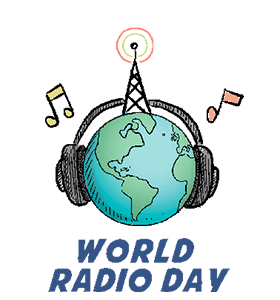
World Radio Day is observed annually on February 13 with the aim of highlighting the significance of radio.
Even in the age of countless social media platforms, radio has remained the most enduring and widespread form of communication.
Radio is a great way to celebrate all the different ways people are alike and different, and it also gives people a place to talk about democratic issues.
Radio is the most effective way of delivering information. It is a free and has the widest geographical reach and the greatest audiences compared with the Internet, television, and newspapers.
In a messgae to commemorate the day, Assistant Director-General for Communication and Informationl, UNESCO, Tawfik Jelassi, said UNESCO will continue to support independent radio to be seen as an important part of keeping peace and stability.
World Radio Day: History
Radio dates back to the mid-19th century in the world. It works with the help of sound waves and signals that transmit messages to a specified bandwidth. Radio arrived in India in the early 20th century. However, it took years before it became a popular medium of mass media.
Radio was for those who were unable to read advertisements or newspapers but were able to listen and understand things better.
The member states of UNESCO first proclaimed this day back in 2011 but it was later adopted by the United Nations General Assembly (UNGA) in 2012 as an International Day.
From then on, February 13 was observed as World Radio Day.
RN







